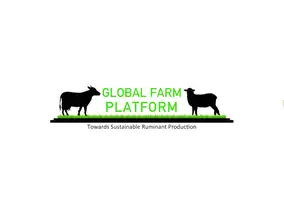Overview
The School of Agriculture and Environment – Te Kura Mātauranga mō Ahuwhenua me Te Taiao offers internationally recognised teaching and research that aims to develop a balance between social, environmental and economic outcomes for production and sustainability.
At Massey we are Tiriti-led, upholding te Tiriti o Waitangi principles through our practice.
How we fit
The School of Agriculture and Environment is part of the:
College of Sciences
The College of Sciences seeks innovative solutions to challenges facing our world.




Study with us
Choose from a range of qualifications, with study options such as animal science, earth science, environmental science, environmental management, and farming.
Explore by area of interest
Explore a selection of qualifications relating to your interests.
Study agriculture & horticulture
Learn about food, farming and agribusiness at Massey. We've taught agriculture and horticulture since 1927. Find out your study options today.
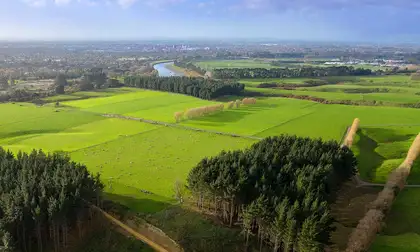
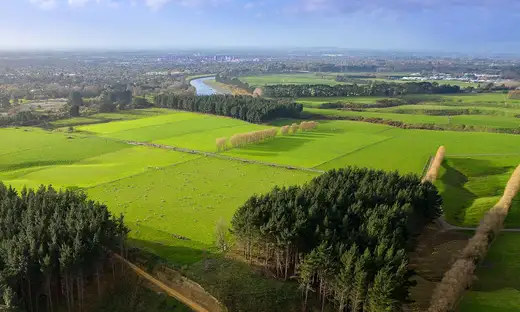
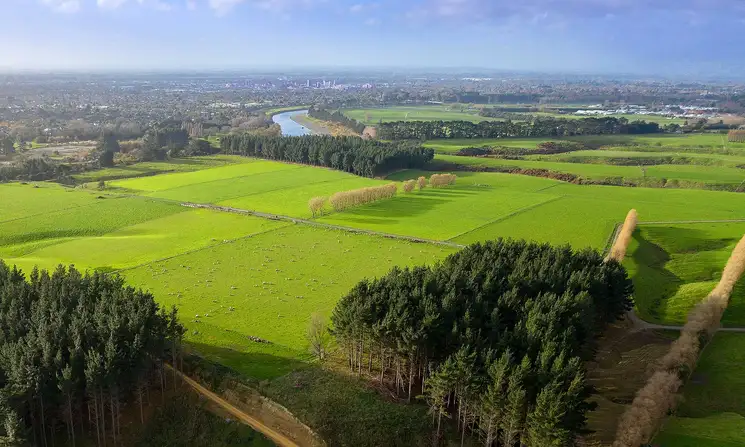
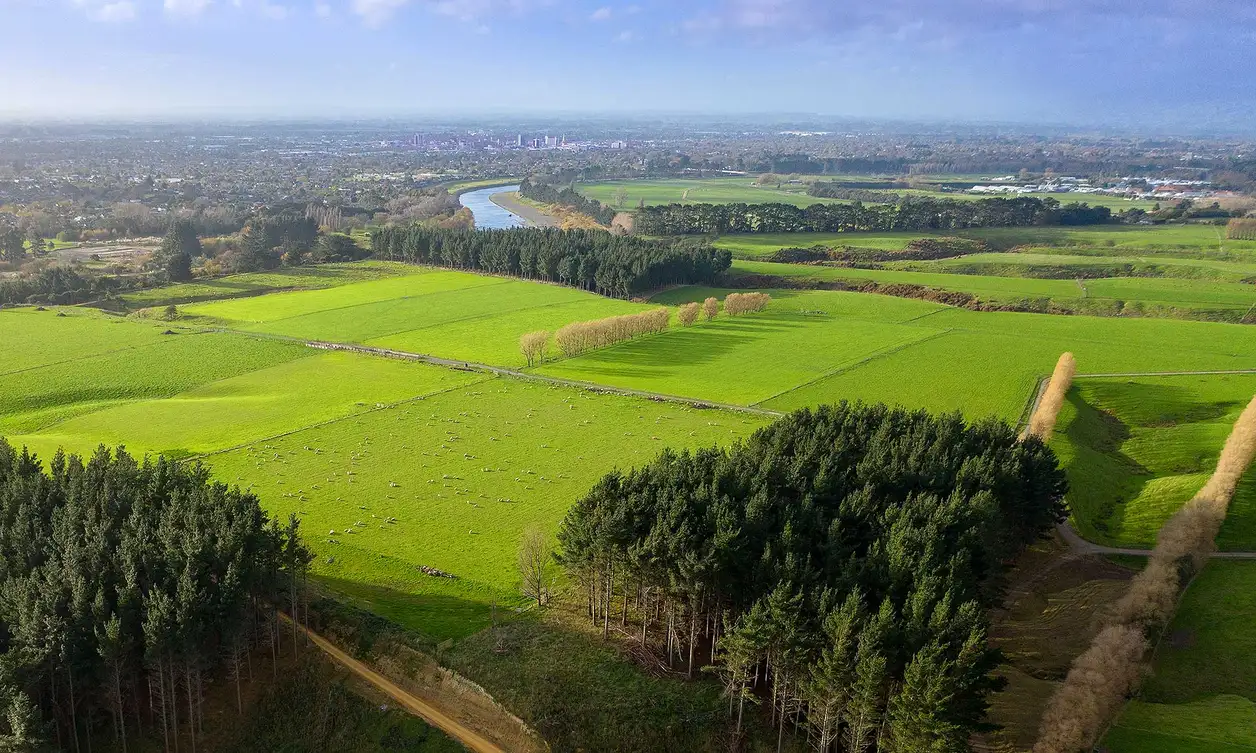
Study animal science
Study animal science at Massey to improve the health, productivity and wellbeing of animals we rely on for companionship, for food, or for sports.
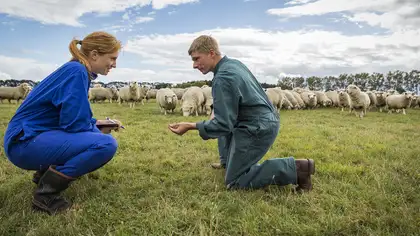
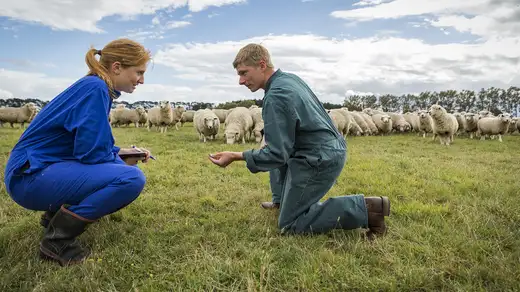
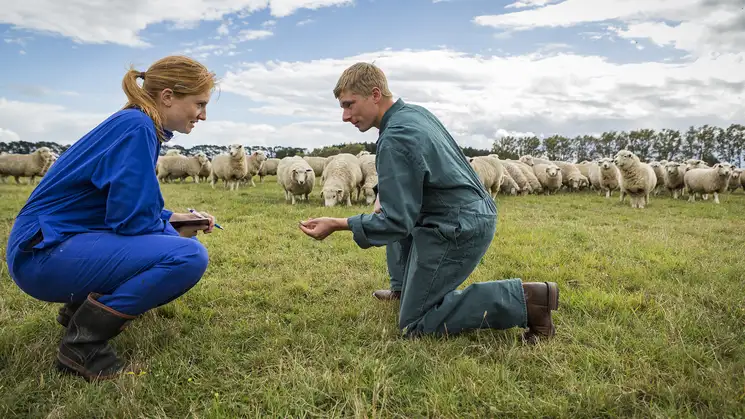
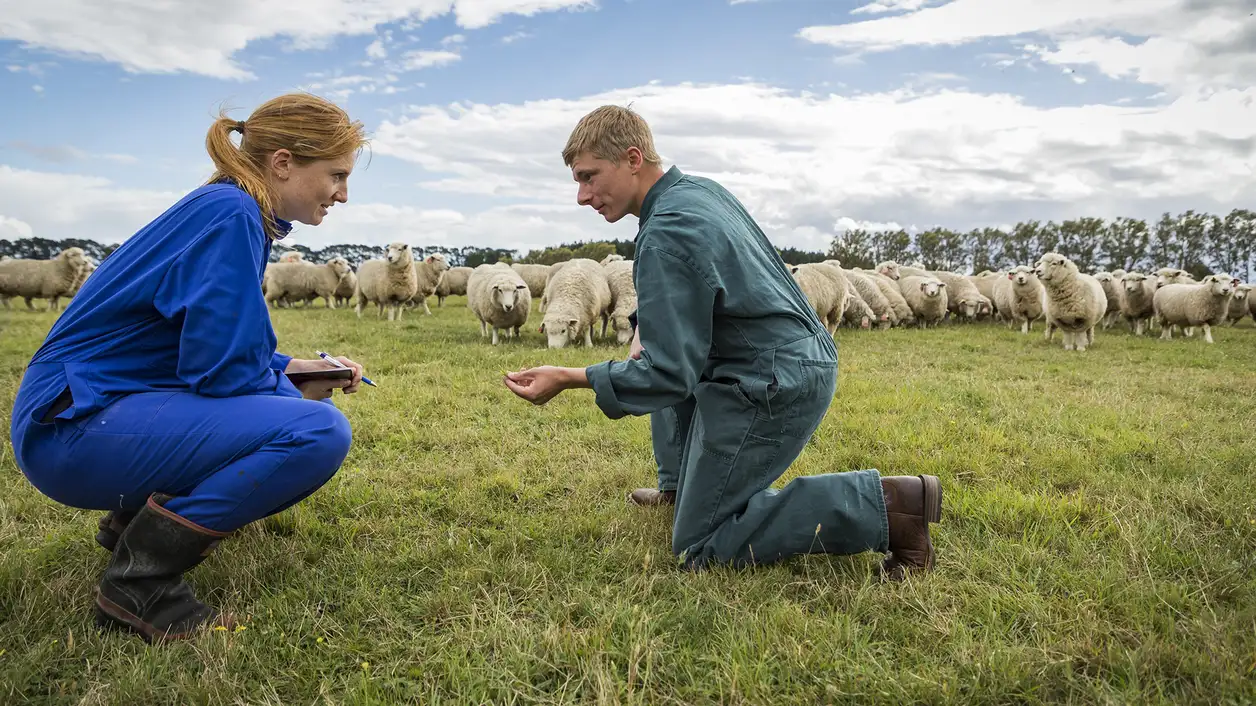
Study natural environment
Study at Massey to create a sustainable future for the planet and its people, plants and creatures. Discover your study options today.
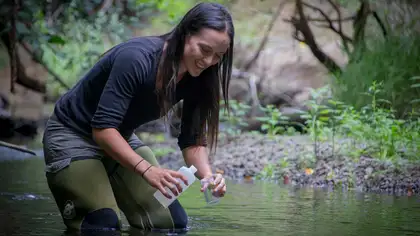
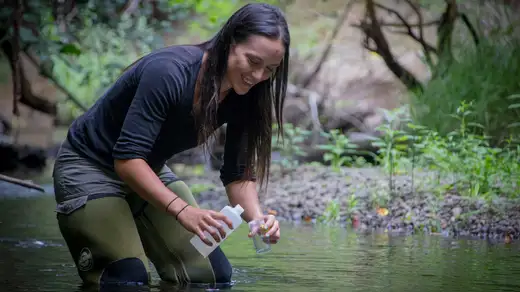
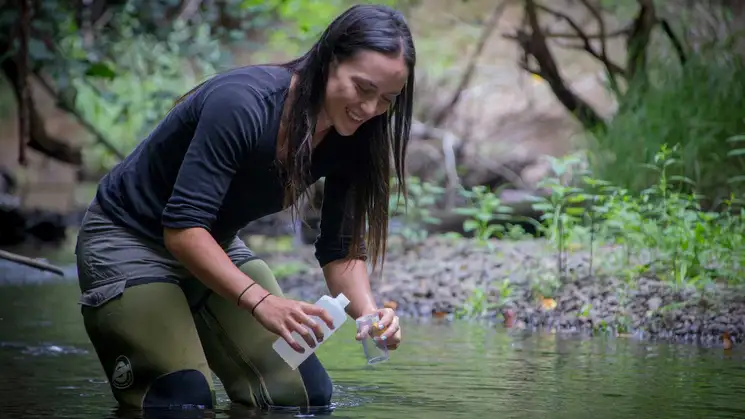
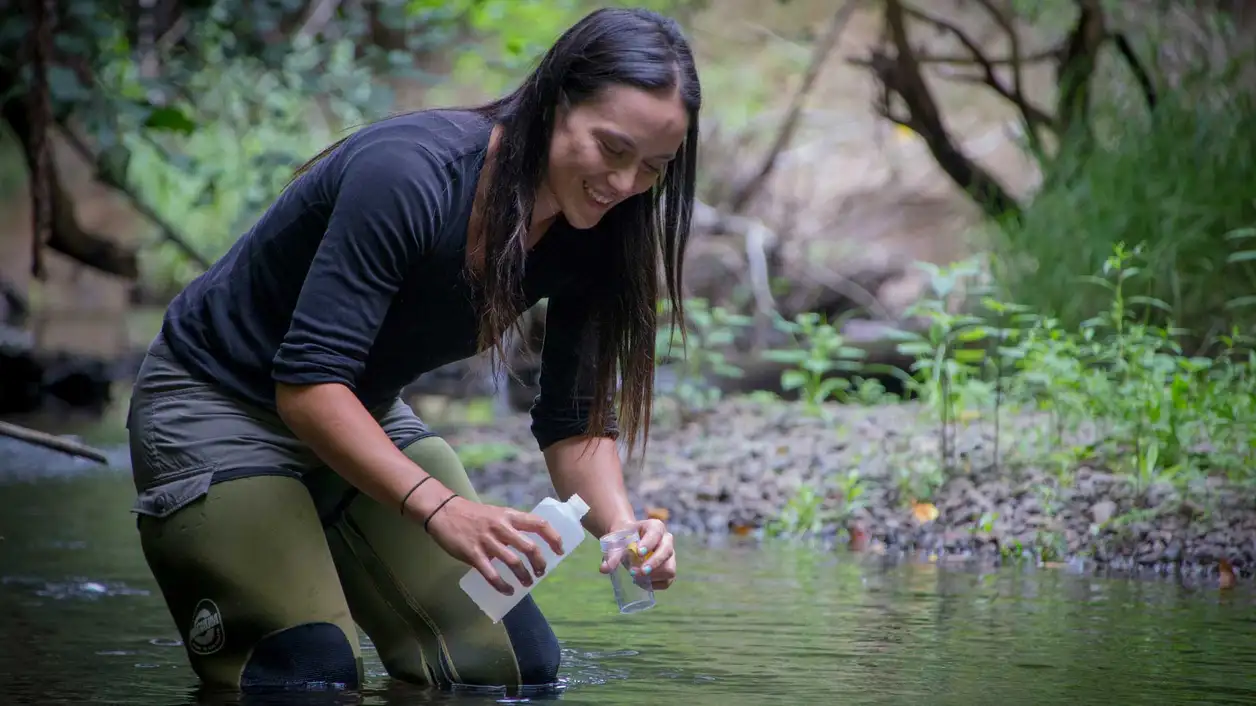
Who we are
Our people make us who we are. Meet senior leaders in the School of Agriculture and Environment.

Professor Paul Kenyon
Paul Kenyon's expertise is sheep husbandry. He undertakes a range of research at both the basic science and applied level. Paul has strong links with the sheep industry in New Zealand.

Professor Danny Donaghy
Danny Donaghy studied agricultural science at La Trobe University then did a PhD at the University of New England, New South Wales. Before Massey, Danny led and managed dairy research, development and extension as Dairy Centre Leader at the Tasmanian Institute of Agriculture.
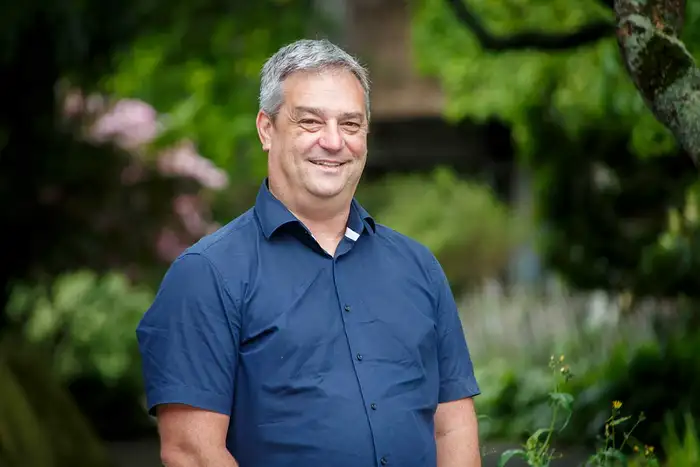
Professor Jonathan Procter
Jonathan Procter manages Massey’s Volcanic Risk Solutions research group. Jonathan contributes to national and international research into volcanic hazards, hazard detection and simulation, and community resilience to natural and environmental hazards.

James Millner
An agronomist, James Millner teaches agriculture and horticulture degrees. James's research interests are cash and forage crops, and the use of trees on farms. James is the academic lead for our bachelor's degrees in agricultural science, agribusiness, horticultural science and animal science.

Dr Janet Reid
Janet Reid is a senior lecturer in agricultural systems. Her research interests include governance of New Zealand agriculture, farmers' knowledge cultures, the role of regional councils, and agricultural extension and consultancy.

Professor Patrick Morel
Patrick Morel is from Switzerland, where he studied animal science at the Federal Institute of Technology in Zurich. Patrick's research focuses on nutrition, growth, and meat quality, mainly with pigs.

Professor Chris Anderson
A soil chemist, Chris Anderson's research focuses on the use of plants to extract, degrade or immobilise contaminants in soil. Chris has significant experience in the application of new environmental chemistry techniques to science and technology problems.
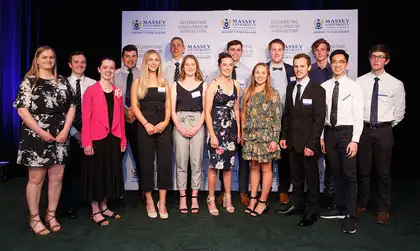
Massey Agriculture, Horticulture and Environmental Science Awards
We celebrate excellence in education and recognise our top-achieving students. Winners in the nine award categories are announced at our Awards Dinner — a highlight of the agricultural calendar and an essential for industry and our best and brightest students.
Research
The School of Agriculture and Environment’s research focuses on:
- creating a sustainable, environmentally friendly, animal welfare friendly, and profitable future for our primary industries (pastoral agriculture, crops, horticulture and forestry)
- the management of New Zealand's indigenous biodiversity and landscapes.
Research teams and clusters
Our research expertise and examples of how our people collaborate, including with partners outside Massey.
Agricultural systems management and agribusiness
Our research strengths include:
- plant and animal production systems in farms and agribusinesses
- dynamics defining financial and resilient performance and their management
- market and industry structures
- extension and service systems that support innovation and capability in the primary sector.
Animal science and production
Our research includes animal genetics, reproduction, nutrition, lactation, growth and meat science. Our work aims to improve animal productivity, efficiency, product quantity and quality, and welfare in a sustainable and responsible manner.
Our research includes a range of farmed and companion animals.
Earth science
Using advanced Earth observation, remote sensing techniques and computational modelling, we integrate ongoing scientific advancements in Earth surface processes with our volcanic and fluvial environment. Our new solutions inform practical risk-management strategies in New Zealand and overseas communities.
Environmental science
Environmental science at Massey covers soil science, hydrology, nutrient cycling, and environmental management. Our expertise is advancing new approaches for sustainable consumption and production, farm environment planning and risk assessment of contaminated soil and water.
Horticulture
Our expertise is in applied and basic areas of horticultural crop production and management, plant breeding, genetics and germplasm conservation, protection and pest and disease management, Māori community food systems and ethnobotany, seed science, weed science and plant and post-harvest physiology.
International development
The school has a breadth of expertise and experience in research and delivery of rural development internationally. Work to date extends across the Pacific, South-East Asia, South America and Africa, with a focus on enhancing integrated production and support services and building resilient farm, agribusiness and food systems.
Tāhuri Whenua – National Māori Vegetable Growers Collective
Massey staff are on the Tāhuri Whenua National Committee. This group represents Māori interests in the horticulture sector, and provides information for growers, books, projects and contacts for regional activity.
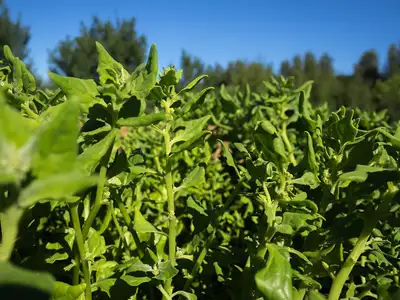
Joint Graduate School of Horticulture and Food Enterprise
A partnership between Massey and Plant & Food Research to offer world-class learning and research opportunities. Massey's teaching and research expertise is complemented by Plant & Food Research's focus on delivering for industry. Staff work together on research and teaching.
Research centres
Our research centres seek innovative solutions to contemporary issues.
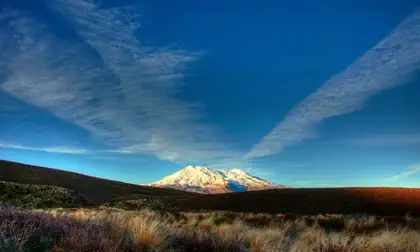
Volcanic Risk Solutions
During volcanic events, we provide rapid scientific information to local governments, businesses and farms. We also develop scientific advances in volcanology within practical risk-management strategies for New Zealand and Southwest Pacific communities, business enterprises and government agencies.
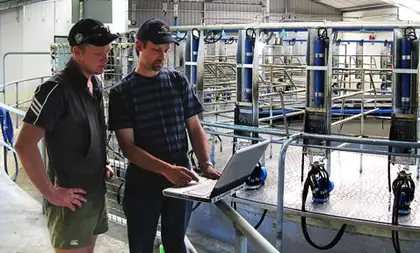
Farmed Landscapes Research Centre
Massey University's Farmed Landscapes Research Centre engages in teaching and research on soils, fertilisers and environmental issues in agriculture, horticulture and forestry.
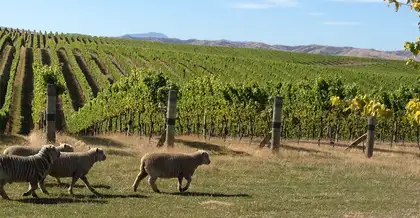
New Zealand Life Cycle Management Centre
The centre is a collaboration between Massey University, AgResearch, Landcare Research, Plant & Food Research and SCION. It works to build capability in life cycle management (LCM) by providing education, training and research to LCM professionals to meet increasing consumer demand for green metrics on products.
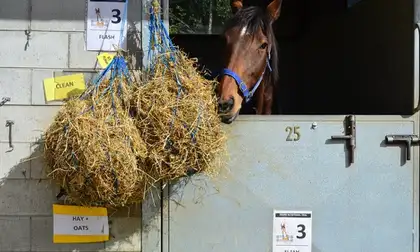
Monogastric Research Centre
An Australasian Centre of Excellence on monogastric species. Research focuses on feed evaluation, nutrition, husbandry and welfare. It provides a focal point for the New Zealand monogastric industries and has extensive international linkages.
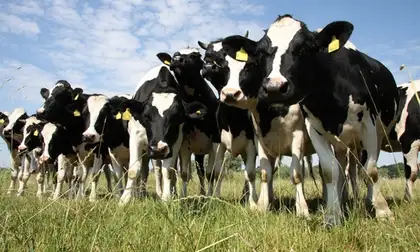
AL Rae Centre for Genetics and Breeding
The centre ensures sustained development and application of knowledge in quantitative genetics and breeding to enhance the profitability of New Zealand's primary industries.
Research projects
Examples of how our people create and share new knowledge.
Native shrubs
The growth, forage traits, economics and mātauranga Māori of several native shrub species are being assessed as potential browse in hill country. Other outcomes are improved soil conservation, water quality and biodiversity. Part of Beef and Lamb New Zealand's Hill Country Futures project.
New-generation beef
A new system of beef production which uses surplus calves from the dairy industry with slaughter at the age of one year. Research investigates production characteristics, on-farm environmental footprint, meat quality and application into an integrated supply chain.
Plantain to reduce nitrate leaching
This DairyNZ-led collaborative research and development initiative aims to substantially reduce nitrogen lost to freshwater and greenhouse gas produced from pastoral sectors by using the grazing herb plantain.
Resilience to nature's challenges: Volcanoes
Āhea riri ai ngā maunga puia? When will our volcanoes become angry? This research will develop resilience and mitigation solution for the multiple and dynamic threats from volcanic activity into long-term planning and emergency management response. Part of the National Science Challenge's Resilience Challenge.
He Tātai Whenua: A Te Ao Māori landscape classification
Prof Jonathan Procter (Muaupoko, Ngāi Tahu), Associate Prof Hone Morris (Ngāi Te Rangitotohu, Ngāti Mārau, Ngāti Maru)
Modern environmental mapping systems can provide almost everything there is to know about the environment, except what Māori know about it. This project brings together mātauranga and the latest geographic information systems to improve environmental reporting, decision-making and monitoring.
Accreditations and rankings

ShanghaiRanking - agricultural science
Massey University is ranked No.1 in New Zealand for agricultural science by ShanghaiRanking's Global Ranking of Academic Subjects.
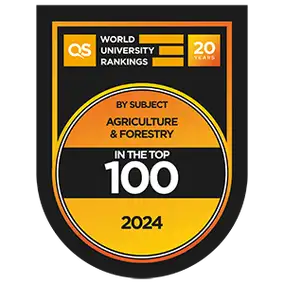
QS Ranking - Agriculture and Forestry
Massey is world-ranked and New Zealand’s No 1 university in agriculture according to QS (Quacquarelli Symonds) rankings.
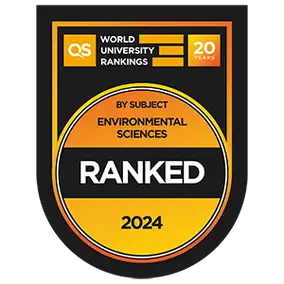
QS Ranking - Environmental Sciences
Massey University’s environmental sciences programme is ranked in the top 350 in the world by Quacquarelli Symonds (QS).
Services
Massey offers services for the public, as well as research or training for staff, students and professionals.
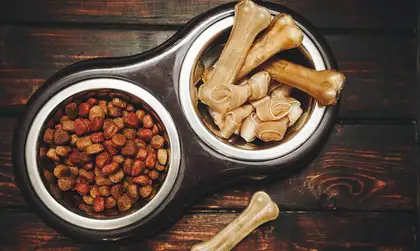
Animal feed testing service
Our testing service meets industry standards for feeding protocoI testing (growth, maintenance and gestation/lactation) and AAFCO nutrient profile testing. We offer detailed reporting on measures such as metabolisable energy determination, blood metabolite and urine pH.
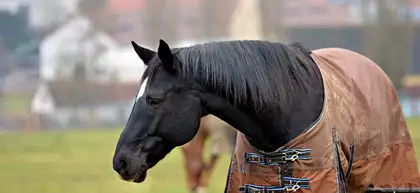
Animal genetic services
Massey University’s InfogeneNZ offers the most comprehensive range of DNA-based genetic testing for animals in New Zealand.
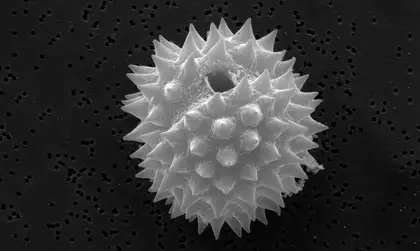
Palynology laboratory
Palynology is the science of pollen. It brings together aspects of geography, earth science, plant biology and ecology.
Massey operates a world-class palynology laboratory for pollen analysis, where we have developed the Classifynder, a holistic automated pollen imaging and classification system.
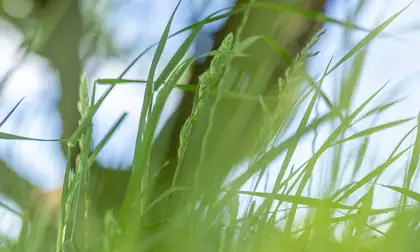
Pasture plant identification
This resource identifies New Zealand's most common pasture grasses and legumes in New Zealand, including a few of our most common cereal and forage crops. Find out how to recognise different pasture grasses and clovers.
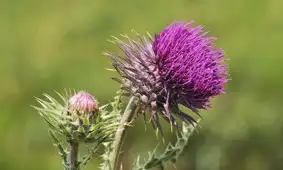
Weeds database
Need help identifying weeds? This database has detail on 70 of the most common weeds found in New Zealand, including how to identify and control the plant.
Resources
Books by experts from the School of Agriculture and Environment.
Agriculture and Horticulture in New Zealand
A guide to the business of growing plants for human and animal consumption, as well as forestry and flower production. It focuses on New Zealand practices, and information on social issues, environmental costs, food safety, chemical use, and post-harvest management.
Find out more about Agriculture and Horticulture in New Zealand
Livestock Production in New Zealand
A guide to the management of dairy cattle, beef cattle, sheep, deer, goats, pigs, poultry, horses and working dogs in New Zealand. It is of value and interest to everyone from students to farmers, right across New Zealand’s agribusiness sector.
Facilities
We use a wide range of first-class facilities in our teaching and research.
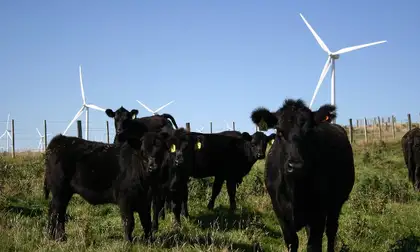
Massey Farms
Students and researchers can access 2,000 hectares at our six working farms, including:
- dairy farms
- sheep and beef farms
- deer breeding unit
- mixed enterprise and cropping unit.
Location: Manawatū campus
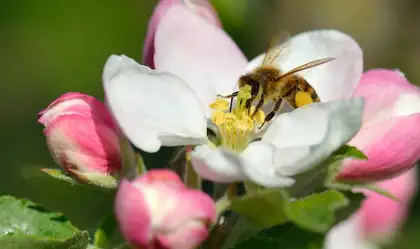
Massey horticultural units
Purpose-built facilities for teaching and research in plant science and production include:
- 7 hectare orchard
- 25 glasshouses
- six temperature-controlled rooms
- growth cabinets.
Plantings include apples, pears, green and gold kiwifruit, and vegetable trials of traditional Māori crops.
Location: Manawatū campus, Palmerston North
Contact: Mark Osborne
Email: m.a.osborne@massey.ac.nz
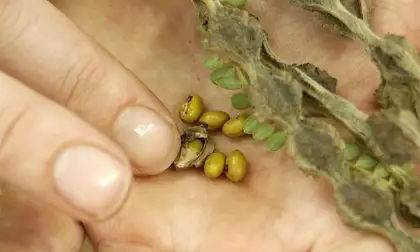
New Zealand Indigenous Flora Seed Bank
The seed bank collects the seeds of Aotearoa New Zealand plants to conserve the biodiversity within our indigenous flora. Seed banking is a recognised conservation strategy to support in-situ conservation efforts.
Location: Manawatū campus
Contact the School of Agriculture and Environment
School of Agriculture and Environment – Manawatū campus
- Location
Physical address
AgHort Building
Manawatū campus
Palmerston NorthUse our Manawatū campus maps or find us on Google Maps.
